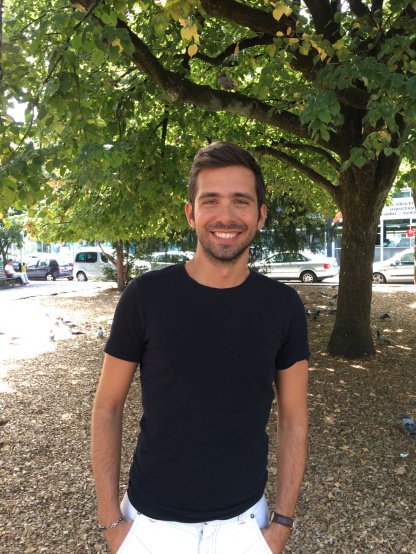Giacomo Rossetti - ESR 10
Name: Giacomo Rossetti
Nationality: Italian
Main Host Institution: University of Geneva- Department of Molecular Biology
Academic Background: I’m a PhD student enrolled in the International PhD program in life sciences of the University of Geneva since September 2016.
In 2014 I got my bachelor in Biology at the University of Parma, in Italy, during which I did an internship at the ‘Interdepartmental center of molecular and translational oncology’: here I was involved in a project aiming at the engineering of human and murine melanoma cell lines for the expression of the proteoglycan GPC5, to evaluate its role in enhancing cell migration and invasion capabilities.
Always at the University of Parma, in April 2016 I got my master in Molecular Biology. One year was dedicated to carry out my master thesis at the ‘Unit of biochemistry, molecular and translational oncology’, dealing with the development of assays for the quantitative analysis of MGMT mRNA, protein expression and enzymatic activity in patients with acute myeloid leukemia, being MGMT a DNA repair protein proven to be the main resistance mechanism to DNA-alkylating agents used as salvage therapies.
As you can see, my studies focused mainly on cancer because I wanted and I want to understand it at a cellular and molecular level giving my contribution towards the development of new, less-toxic therapies. This is one of the reasons why I joined Thanos Halazonetis’ lab.
Project title: Mapping of DNA replication origins in mouse intestinal adenomas compared to normal tissue.
Project background: Thousands of origins of DNA replication (ORIs) are activated in each cell cycle to ensure the precise duplication of billion base pairs composing the mammalian genomes. Not all of them are activated in each cell cycle. The excess ORIs are used by the cells in presence of DNA replication stress. DNA replication stress is prevalent in cancer and is a major source of genomic instability. So far, the difficulties in mapping the ORIs represent a major impediment for understanding the mechanisms causing DNA replication stress which in turn can lead to cellular transformation. The choice about when and where DNA synthesis is to occur has a critical role in preventing genomic instability.
Project Aim: This study aims at understanding the molecular basis of genomic instability in cancer cells. To address this aim, we intend to map DNA replication origins in organoids derived from single intestinal normal and cancer cells of APC-mutant mice. We are making efforts to synchronize the normal and tumor organoids in G1/S and then release into S phase labeling nascent DNA. Methods to isolate labeled nascent DNA directly from organoids are being optimized to allow us to work with very small quantities of DNA.
Expected outcome: The expectation is to find that the DNA replication origin firing program will differ in tumor organoids as compared to normal organoids.
